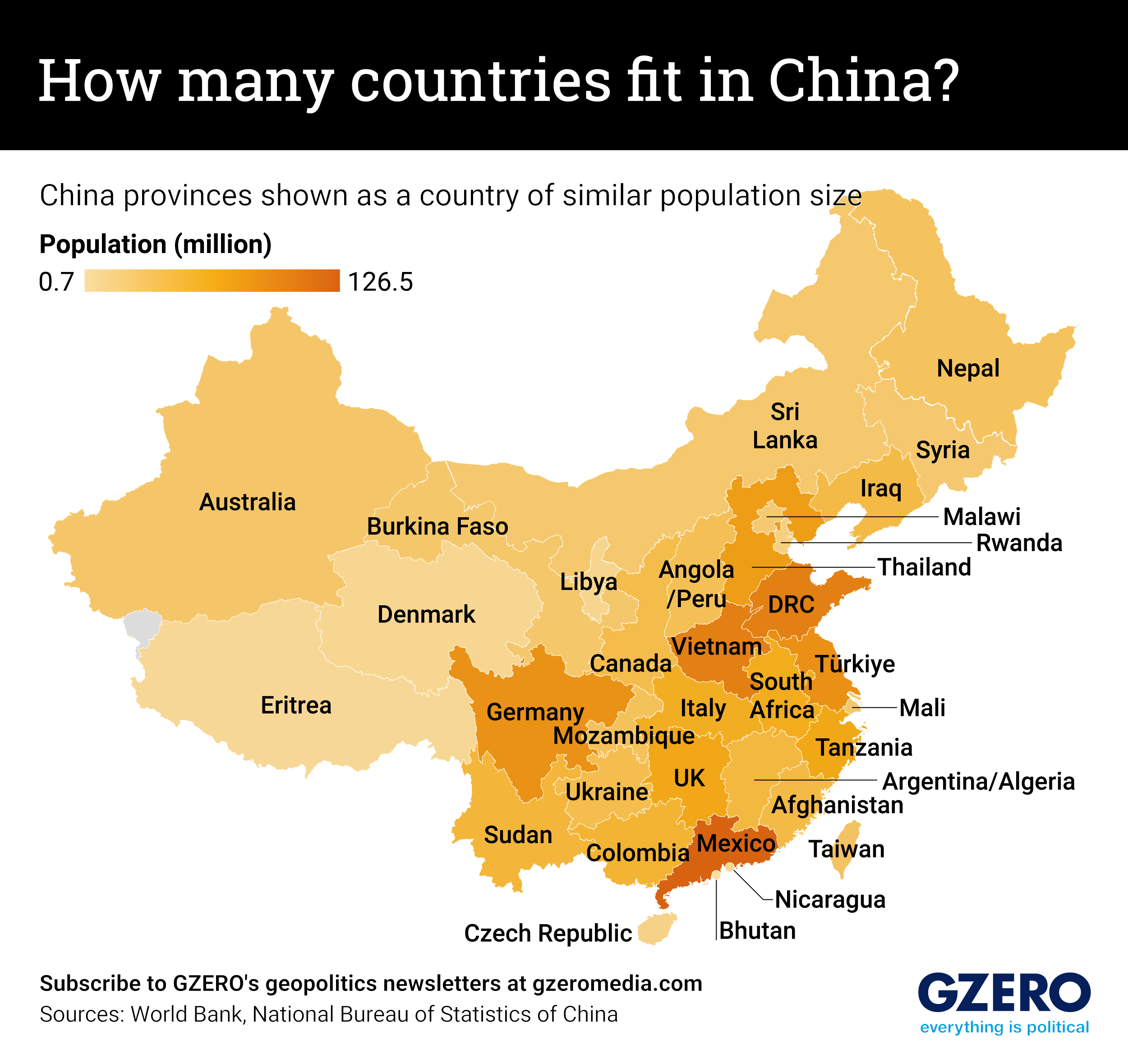China’s population, once the largest in the world, is now gradually shrinking. The problem has become so acute that the authorities last week raised the pension age by up to five years due to fears that there might not be enough working-age people to support the country’s pension system.
Still, even as the world’s second most populous country – India is now first – China boasts a vast population of some 1.4 billion people.
To put that in perspective, the country is home to nearly one out of every five earthlings.
In fact, of China’s nearly three dozen primary administrative districts, the two most populous – Guangdong and Shandong – alone contain more people than 99% of other entire countries.
Here is a look at China’s provinces expressed (give or take a few million people) as the populations of other entire countries.
For more on the challenge that China faces in maintaining its population, see here.